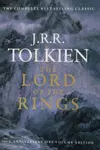Antti's Books by Status
157 Books
See allAntti's Pinned Prompts
Featured Prompt
4,644 booksWhat are your favorite books of all time?
When you think back on every book you've ever read, what are some of your favorites? These can be from any time of your life – books that resonated with you as a kid, ones that shaped your personal...
Antti's Most Popular Reviews
I'm impressed more and more with Mishima. The two works I've now had the pleasure to acquaint with, The Sailor Who Fell From Grace with the Sea and now this, are singular works, Mishima's prose full of power, beauty and life. I'm going to visit the golden pavilion first before embarking on a journey to the sea of fertility. I can't wait.
The Sound of Waves is a coming-of-age story, a Romeo and Juliet of forbidden love, a social study of a closed island community like Imamura's Profound Desires of the Gods, a predestined Greek tragedy with the interference of the deus ex machina, and ultimately a very strong statement of Mishima's acute sense for the artful. His descriptions are alive with feeling for that which can be touched and that which can only be dreamed in silence; the characters are formed with broad brushstrokes, and come to life first as if from afar, then more and more in detail. And, it's as if Mishima wanted to show that once in a while, there is love and contentment, and happiness.
It's not easy to write economically and with clarity, and convey what's important. It's always easier to wander off a bit on the way instead of going straight ahead. Mishima certainly knows how to, and that's what brings such an edge to his writing. This is an author who seems to know what he's saying and why, a rare gift indeed.
28 October,
2014
I absolutely loved Wolf Hall and Bring Up The Bodies, so my excitement for The Mirror & The Light was on par with many of yours. I ordered the 4th Estate hardback, got the Kindle edition and Audible audiobook as soon as they became available, and got going.
I'm putting this on hold for the time being. I'm almost 200 pages in, and it's been quite a slog. The first two books had such fervent momentum going on that I'm finding it quite difficult to get this one going.
I'm rereading Proust's In Search of Lost Time, and loving every page of it (halfway through the second volume after starting the first one in late February), which offers an interesting counterpoint to my experiences so far with this book. I'll return to this later, maybe in the summer.
Amazing! I have rarely loathed a book this much. A mess of narrative non sequiturs. A great example of an embarrassing deus ex machina. Throw spaghetti at the wall and see what sticks. No humor, no heart, no sense of direction. I did wonder whether this would turn out to be an intentional, Pythonesque literary hoax and it would all resolve itself in a climax of... something?
I tried reading The Wizards of Once, had to give up after 100 pages because it was too painful. I thought this might be better. Yuck! Obviously this author is not my cup of sake.
I find José Saramago to be one of the greatest writers I've come across. His writing style complements his sense of humour and humanity, and the way he weaves his stories out of the sometimes comical, sometimes absurd, often both, and of the everyday comings and goings of people, results in his hands in strong prose, acute sense of humanity and overall entertaining literature.
That said, All the Names (1997) was, for some reason, a bit of a letdown. I did appreciate the play with catalogues, identity and search of self, and I think the parts of the book that had our narrator play detective against the regulations straight out of Gilliam's Brazil (1985) were fantastic literature. But something I couldn't connect with, and found myself losing the way at some point, and couldn't find back.
The overall feeling that remains after perhaps four months is that it could have been shorter, which is strange since I've never felt Saramago to meander or beat around the bush. It won't be until sometime when I'll give it another try, but maybe I simply read it at the wrong time.
6 October,
2014























